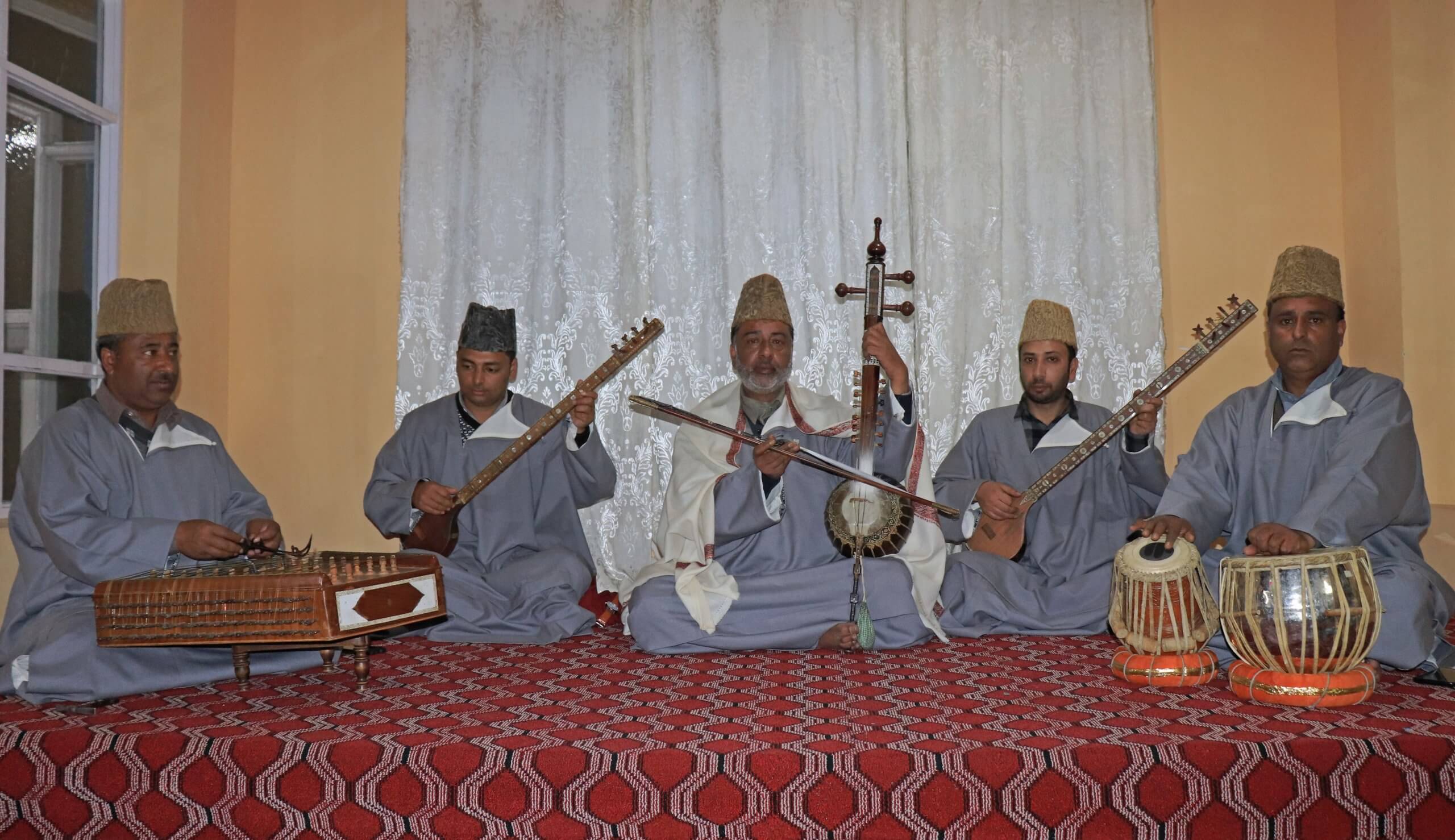Our sixth panel in the Indo-Persian Confluence series considers Persian texts about music that were produced in the Indian subcontinent, followed by a performance of the traditional music of Kashmir on Persian poems.
For more information on previous and upcoming events, click here to visit the Symposium Website
Panelists
Yousuf Saeed (Independent Scholar and Filmmaker), "Urdu Musicology in 20th century South Asia: Defining Religious and National Heritage"
Françoise 'Nalini' Delvoye (EPHE, Paris), "Studying Indo-Persian Texts on Performing Arts in South Asia (13th to 17th century): An Homage to the Contribution of Shahab Sarmadee (1914-1994)"
Assadullah Shour (Independent Scholar), "Persian tarāna with Indian Sangeet"
Pegah Shahbaz (University of Toronto), "Narrating about Music: Chapters of Musicology in Indo-Persian Narrative Literature"
Joep Bor (Leiden University), Chair and Moderator
Performance
Saznawaz Family Ensemble, Traditional Music of Kashmir on Persian Poetry
Traditional music of Kashmir is a unique case in the Indo-Persian world. Kashmiri traditional musicians play maqams that are mentioned in classic Persian texts on music, such as Navā and Busalik as well as maqams that are known in India as ragas, such as Tudi. Moreover, Persian poetry is widely used in the repertoire of the traditional music of Kashmir. The Saznawaz family is one of the remaining hereditary music traditions. Mushtaq Ahmad Saznawaz, Shabir Ahmad Saznawaz, and Mohammad Rafiq Saznawaz are the sons of the Late Ghulam Mohammad Saznawaz. The family tree goes back to Sultan Joo who immigrated from the western regions of Central Asia or Iran. The musical tradition was reportedly passed on to his son, Hadi Joo, and from him to his grandson, Sultan Joo, and from his grandson to his great-grandson Wazir Joo, and then to his great-great-grandson Ramazn Joo who was the father of Ghulam Mohammad. Saznawaz family ensemble includes Mushtaq Ahmad on the Kamancheh (bowed), Shabir Ahmad on the Santoor (zither), Mohammad Rafiq on the Dukra (percussion), and Kaiser Mushtaq and Wajahat Shabir on the Kashmiri Sitar.
About the Event Series
The Indo-Persian Musical Confluence Symposium presents a series of performances, workshops, and presentations by academics, independent scholars, musicians and artists whose work relates to Indo-Persian musical cultures, including the Indian subcontinent, Central Asia and Iran.
This collective exploration of the Indo-Persian musical exchange aims to give new prominence to its contemporary legacy while enhancing musical relationships, collaborations, and comparative research.
Event Co-Sponsors
The Mohindar Brar Sambhi Chair in Indian Music at The UCLA Herb Alpert School of Music
UCLA Department of Ethnomusicology
UCLA Center for Musical Humanities and the Joyce S. and Robert U. Nelson Fund
UCLA Jahangir and Eleanor Amuzegar Chair in Iranian Studies
UCLA Iranian Studies program
UCLA Center for India and South Asia (CISA)
UCLA Center for Near Eastern Studies (CNES)



